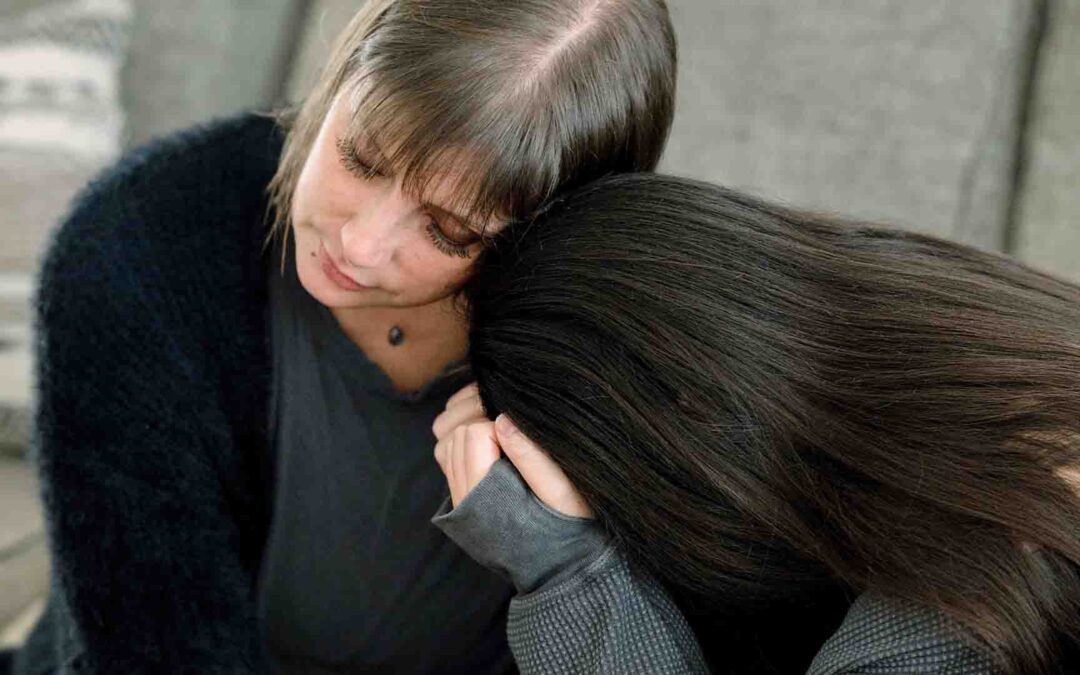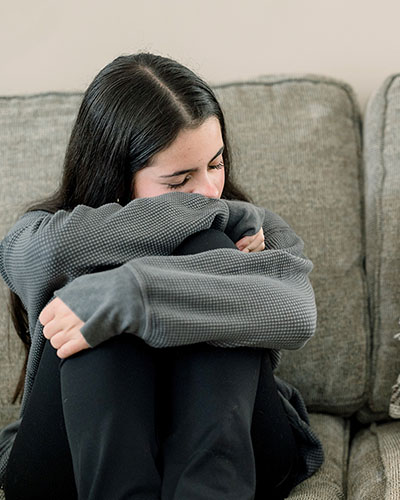You never imagined that parenting would lead you here. When you first thought about your family, you dreamed of happy, curious, healthy kids. But somewhere along the way, life turned upside down, and now your child is struggling with something you never thought they’d face—trauma. They’re overwhelmed by their emotions, having trouble maintaining friendships, and their self-esteem is in the gutter. You’re at a loss because no one ever told you how to parent a teen with PTSD, and you can’t turn to friends or family—they haven’t been through this. What do you do?
This post is for you. We’re diving into ways you can help your teen recover from trauma and PTSD, so they can find a way back to the life they deserve.
1. Don’t Blame Yourself for What Happened
It’s natural to want to protect your kids from all the bad things in the world. When you find out that your child has been through something traumatic, it can feel like a knife in the heart. The guilt, the pain, the feeling of failure—it’s all there. But here’s the thing: you can’t be everywhere, and you can’t shield your kids from everything.
As your child grows, they begin to explore the world on their own. They’ll have experiences outside your reach, and you can’t always protect them—even from things that might happen in your own home. If you didn’t know, how could you prevent it? It’s common for parents to blame themselves, thinking, I should have seen the signs. I should have known better. I should have kept them away from that person. But self-blame can hold you back from taking action to help your child.
If your teen is letting you in, if they’re allowing you to support them, that’s a huge step. They’re giving you a chance to be there now, and that means recovery is possible.
2. Don’t Blame Yourself if They Didn’t Tell You
It’s incredibly common for kids not to tell their parents about trauma. Especially if your child feels ashamed or believes it’s their fault, they might keep it hidden. They might think, My parents warned me about this, or I wasn’t supposed to be there. They don’t want to let you down, or they’re afraid of hurting you.
Kids often hold back when the trauma is sexual in nature. Sexual trauma is one of the most underreported crimes in the U.S. It’s normal for kids to stay silent, sometimes for months or even years. They may feel guilt, shame, or simply lack the words to express what they went through. If they didn’t understand what was happening themselves, there’s no way they could explain it to you.
3. Stay in Control of Your Own Emotions
Finding out your child has been traumatized is incredibly painful. You’ll feel a whirlwind of emotions—anger, fear, sadness, guilt, and more. All of these feelings are valid, but when you’re with your teen, they need to see that you’re in control.
If they think their emotions will upset you, they’ll hesitate to share their own struggles. Your teen needs a space where they can express themselves without worrying about how it’ll affect you. It’s okay to have emotions, but you’ll need a way to process them—whether that’s through your own support network or a therapist—so you can be present for your child.
4. Get Them the Right Help
When you first hear about your child’s trauma, you probably want to get them help right away. Traditional talk therapy is great for handling everyday stressors like relationships or school issues, but trauma requires something more specialized.
If your teen has trauma symptoms or PTSD, they need trauma-focused therapy, not just trauma-informed care. Trauma-focused therapy targets the specific symptoms of trauma. For younger kids, trauma-focused cognitive behavioral therapy (TF-CBT) is highly effective. For teens, options like Cognitive Processing Therapy (CPT), Prolonged Exposure Therapy (PE), or Eye Movement Desensitization and Reprocessing (EMDR) are often a better fit.
Read this blog to learn more about the therapy options for trauma & PTSD.
5. Their Therapist Should Educate You About Trauma
A good trauma therapist won’t just work with your child—they’ll also involve you. As a parent, you’ll need to understand the effects of trauma and the strategies being used in therapy. This way, you can reinforce what’s being learned and support your teen at home. Look for a therapist who takes time to work with you and explain what’s going on, so you can be an active part of the healing process.
6. Maintain Structure, Rules, Boundaries, and Expectations
After a traumatic experience, the world can feel unpredictable and chaotic for your teen. Your home should be a place of stability, where they know what to expect. You might worry about enforcing rules or consequences, fearing that their behavior is trauma-driven. But remember, they’re still a kid or a teenager, and kids need structure to thrive.
Work closely with their therapist to navigate what’s trauma-related and what’s typical teen behavior. It’s okay to set boundaries and hold your child accountable while being compassionate about their struggles.
7. Know That They Can Fully Recover
Hearing that your child has PTSD can be terrifying. It sounds like a life sentence, but it doesn’t have to be. Trauma is painful, but it doesn’t have to define who your teen is forever. With the right support and therapy, they can recover fully and reclaim their life. Hold onto hope for them—because they can get better.
8. Let Them Have a Say in Legal Decisions
After trauma, some teens may want to pursue legal action, while others might want to keep it private. This decision is deeply personal, and there’s no right or wrong answer. Work closely with their therapist to ensure they understand the options and possible outcomes, but ultimately, let your teen have a say. Trauma takes away power; giving them a voice in this decision can be a step toward reclaiming it.
9. Recognize the Impact on Yourself and Get Help Too
Watching your child go through trauma can be traumatizing for you, too. You might feel grief, helplessness, or even symptoms of secondary trauma. This doesn’t mean you’re weak or making it about yourself—it means you’re human. To be the parent your teen needs, you have to take care of yourself as well. Consider seeing a trauma therapist who can help you process your own emotions, so you can show up for your child fully.
Final Thoughts: Supporting Your Teen’s Recovery
Parenting a teen with PTSD is incredibly challenging, but you don’t have to go through it alone. Your teen needs your love, support, and patience as they navigate this difficult journey. By getting them the right help, educating yourself about trauma, and taking care of your own needs, you’re giving your child the best chance at recovery. Hold onto hope, because healing is possible—for both of you.
Ready to Help Your Teen Heal?
If you’re a parent in Massachusetts, Vermont, Virginia, Florida, or Illinois, you don’t have to navigate this journey alone. As a licensed trauma therapist, I specialize in helping teens recover from trauma and PTSD. Together, we can provide your child with the tools they need to regain their sense of safety, rebuild their confidence, and reclaim their future. Reach out today for a free consultation and take the first step toward healing for your family.




